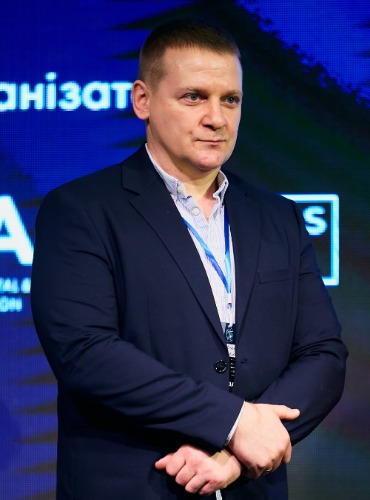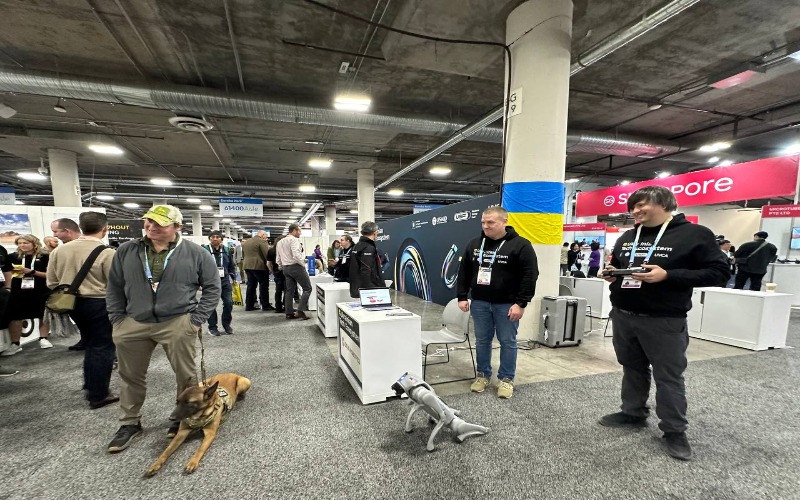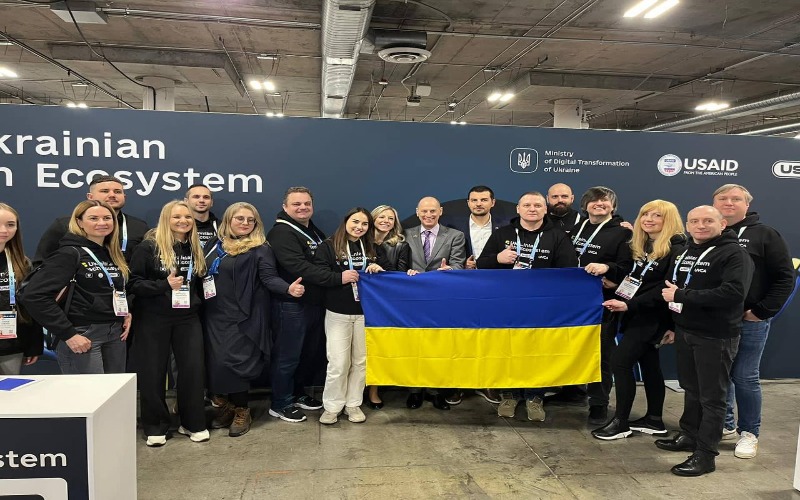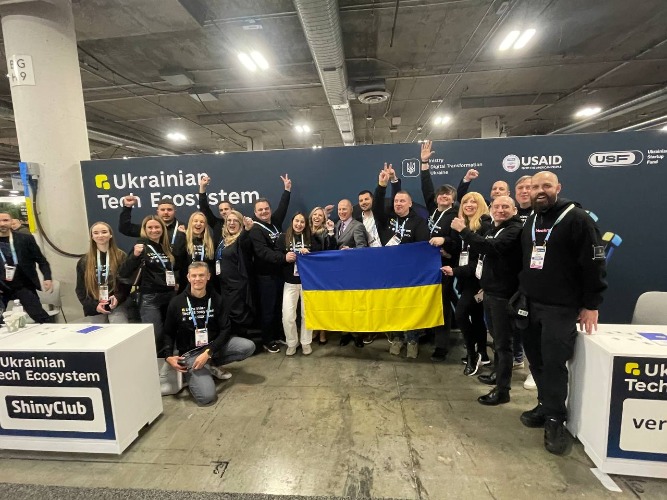Since the Consumer Electronics Show (CES) debuted in New York City in June 1967, it has continually stood out as the leading global tech event where participants can see groundbreaking technologies and innovators from every corner of the world. Ultimately, it’s the perfect place for brands to conduct business and create new partnerships.

Organized by the Consumer Technology Association (CTA), CES 2024 took place this past week in Las Vegas and has been a huge success with 4000 exhibiting companies present.
This year, the event was a great opportunity for visionaries who see technology as a necessity —Ukraine being a prime example. Following Russia’s invasion of Ukraine in February 2022, the phrase “innovate or die” is literal.
To gain insights into the significance of CES for Ukrainian innovators, Innovation & Tech Today spoke with Dmytro Kuzmenko, the Chief Executive Officer of the Ukrainian Venture Capital & Private Equity Association, who attended the event.
Before UVCA, Kuzmenko had over 10 years of experience in the investment and finance sphere, including retail lending, investment banking (mortgage assets), venture investments, and startup management and acceleration. Kuzmenko has been involved in Ukrainian VC\PE ecosystems, thus gaining deep knowledge of the domestic tech market.
I&T Today: What challenges and opportunities do Ukrainian tech startups face globally and how can events like CES help address them?
Dmytro Kuzmenko: One of the key challenges for Ukrainian startups is product-market fit. Thanks to CES, a company can get the first testimonials to use for advertising purposes.
In terms of opportunities- real feedback from visitors is more important than any laboratory research from another continent.
Participating in the show also adds credibility to a startup because CES isn’t attended by random people with questionable inventions. A startup team that is present on the floor will find it easier to make face-to-face contact with potential partners, especially in the B2B segment. Have you been doing business with someone thousands of miles away for a long time? It’s a good time to meet in person at a nearby pavilion or restaurant.
In investments and business in general, the issue of trust is always at the top of the list. For the war-torn Ukraine, the situation is even more urgent. That is why it is essential to be visible.
I&T Today: How does the tech community in Ukraine view CES, and what impact does participating in such global events have on the growth and visibility of Ukrainian startups?
Kuzmenko: For Ukrainian startups, CES serves as a gateway to the global consumer technology market, especially the most desirable one — the U.S. market. It allows a young company to get noticed by the press, to find its first customers, and to be established here. For startups, the USA is like a real El Dorado, with unlimited opportunities for scaling up. Everyone wants to get a famous slice of the American pie. Working in the United States means winning the game called startup.

I&T Today: How has the ongoing conflict in Ukraine influenced the tech industry’s priorities and focus areas in your country?
Kuzmenko: The war has forced startups to rethink their plans, mobilize resources, and focus on higher-priority industries, like defense and military applications. These industries are now experiencing a real boom in innovation, many of which are financially supported by the government (for example, the Brave1 initiative). Specifically, most projects are developing UAVs, electronic warfare, AI & ML, and de-mining. What I think is missing are energy solutions and their decentralization.
One important point: defense and military tech does not mean transferring innovative solutions to the Ukrainian army for free, a kind of charity. Of course, startups develop products for the security of their families and country. But at the same time, they are thinking about selling them to interested parties: both individual allied countries and organizations like NATO.
Startup and commerce are always inextricably linked. And martial law, as strange as it may sound, can be used to the benefit of startups because now any dual-use solution can be tested immediately on the battlefield and get quick feedback from the Ukrainian military.
I&T Today: In what ways has the war in Ukraine prompted a reevaluation of technology needs, especially in critical sectors like healthcare, agriculture, and logistics?
Kuzmenko: In Ukraine, the need for technology has not been denied for a long time (the IT sector accounts for 4.9% of the country’s GDP and continues to grow). On the contrary, more and more hopes are pinned on it in the post-war revival. One often hears comparisons of Ukraine with Israel, and no wonder, because for us, technology means survival.
I cannot say that the war has created a wave of unprecedented technologies. Many, if not most, startups simply found new uses for civilian inventions. For example, in the healthcare industry, it’s bionic prosthetics. They existed before, but they were exotic. Now, startups are aiming to industrially produce tens of thousands of cheap, high-quality prosthetics that ordinary Ukrainians can afford.
The agriculture is focused on mine clearance. In the future, I expect startups to come up with solutions to increase crop yields because the loss of some land will make it necessary to intensify cultivation.
I&T Today: How are Ukrainian tech startups adapting their strategies and solutions to address the unique demands created by the war?
Kuzmenko: The headache for Ukrainian startups today is people. Due to martial law, male employees are not allowed to leave the country and are subject to being called up for military service at any time. This poses a significant risk because anyone can be drafted, from a humble product manager to a CEO and founder.
When evaluating a startup, investors immediately ask about employees based in Ukraine and also insist that there be a woman among the co-founders. As a result, Ukrainian startups can become leaders in gender balance.
Hardware startups, for which it is not easy to evacuate production facilities, face extra struggles. Facilities can be damaged or destroyed during another missile attack anywhere, so founders are eager to move them abroad.

I&T Today: In what ways are Ukrainian startups contributing to humanitarian efforts through technology, particularly in addressing the needs of displaced populations and refugees?
Kuzmenko: The most common ways startups help their fellow citizens are through free access to their products, conversion of production to meet civilian needs, and direct financial support through various charitable initiatives.
I&T Today: Looking ahead, how do you foresee the ongoing war shaping the trajectory of Ukraine’s tech industry, and what role can international collaborations play in supporting these efforts?
Kuzmenko: I expect that in the future, Ukraine will become a strong player in the defense and military tech industry, which will bring substantial capital in addition to security. In my opinion, the war will further accelerate the development of the innovation sector, as young entrepreneurs will prefer mobile, advanced, and scalable companies.
Be that as it may, I doubt that Ukrainian tech companies will get a head start in the market. Investors are ruthless and remain rational. And if that is the case, we are expecting a new generation of great startups because hard times create strong people.











